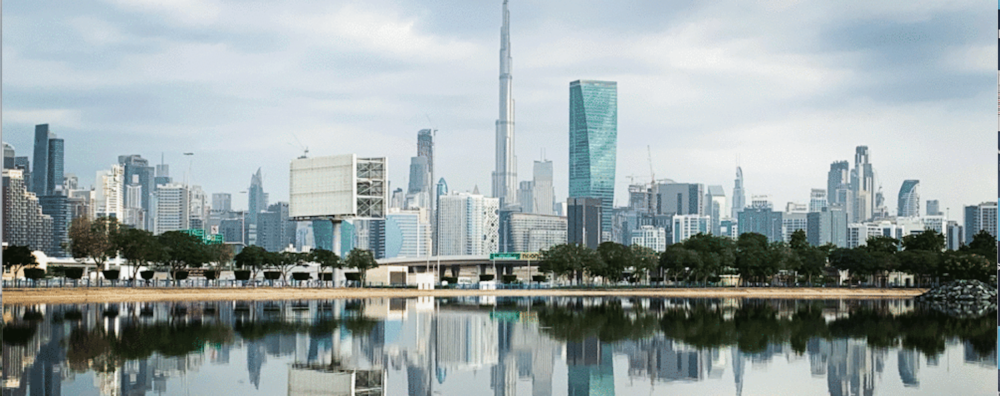We’ve reached that glorious time of the year when travel around the GCC is a blissful mix of perfect temperatures and vibrant culture. Oman, with its mountain ranges, wadis and dramatic landscapes, is hard to beat. Right on the UAE’s doorstep, the sultanate is still infused with the spirit of deepest Arabia and welcomes tourists with a warm and genuine hospitality.

Grand scenery: Oman’s Empty Quarter lives up to its name
Gold, frankincense and mirth in old Arabia
Once a sleepy backwater of the Arab world, Oman has been transformed over recent decades by the modernising zeal of Sultan Qaboos bin Said Al Said.
When he rose to power in a palace coup in 1970, there were only 10 kilometres of paved roads, and the sultanate was suffering from rising poverty and illiteracy rates. Today, the picturesque country boasts an extensive network of highways, up-to-date facilities and a rapidly expanding service sector.
Yet, despite the modernisation drive, Oman still offers a refreshing reminder of a bygone age. A wonderfully exotic winter-sun destination, it is one of the best places in the Gulf to experience traditional Arabia, complemented by a natural beauty and a variety of climate and geography unrivalled in the region.

Sandstone: The Sultan Qaboos Grand Mosque can host up to 20,000 worshipers
City tour
The capital Muscat is in fact three smaller towns that have grown together over time: Muscat, often referred to as the ‘walled city’ and the site of the royal palaces; Muttrah, originally a fishing village; and Ruwi, the commercial and diplomatic centre.

Swarovski crystal: The enormous chandelier in the grand mosque weighs 8.5 tonnes
Don’t leave the capital without seeing the Royal Opera House Muscat (the first opera house in the Gulf, built from Omani desert rose stone and stucco wall coverings, and surrounded by landscaped gardens); the Sultan Qaboos Grand Mosque; the Portuguese forts in the Old Town; and the Bait Al Zubair Museum, containing a wealth of information and exhibits on the country’s culture, tradition and heritage.
Shopping in Muscat’s ancient Muttrah souk is an unmissable experience, with bargains to be had, especially sumptuous pashminas and gold jewellery. While in Muttrah, step into the fish market and stroll along the corniche, taking in the beautiful merchant houses.
Exploring the sultanate
While a city tour is fascinating in itself, and a dolphin-spotting cruise off Muscat’s coast is sure to delight the family, you’ll also want to venture further afield.

Varied: From the fort-dotted mountains of the interior to the pristine beaches of the east coast, the sultanate offers an exhilarating mix of untouched beauty and adventure
Head inland to Nizwa, the old capital, which is surrounded by mountains on every side, or for a classic desert encounter with towering dunes, make your way to the magnificent Wahiba Sands.
Jebel Akhdar, Oman’s Green Mountain, encompasses the great Saiq Plateau, at 2000m above sea level, along with a labyrinth of spectacular wadis and terraces. You’ll need a 4WD to explore this area, which isn’t green like the name suggests, but enjoys cooler mountain air (temperatures during December to March can drop to -5°C) and increased rainfall (including hailstones). Look out for prize pomegranates, apricots and other fruit.

Zighy Bay: Like you’re in Thailand, without the flight
The far north of Oman, the Musandam Peninsula, is a mountainous exclave separated from the rest of the sultanate. Within easy driving reach of the UAE, the scenic strip of land treats visitors to a combination of hideaway resorts and rugged coastline. You could opt to pamper yourself at Zighy Bay (www.sixsenses.com) or go trekking and diving from the Golden Tulip Resort in Khasab (www.goldentulipkhasab.com).
Between June and October, Oman’s southernmost province of Dhofar is lightly touched by the monsoon winds that drench India each year. Life here is more traditional, and the coastline bordering the regional capital, Salalah, was once the site of the Frankincense Trail, considered in ancient times to be southern Arabia’s most important commercial route.

Monsoon-kissed: A Frankincense forest during the summer khareef rains
The beachside Hilton Salalah Resort is set in a wonderful location, or try the Salalah Marriott Resort at Mirbat. You can travel inland to see the trees from which the ancient perfume is harvested, and make sure you don’t miss the markets, or the 3,000-year-old lost city of Ubar, at one time the frankincense export capital of the world.
You might also like: 48 hours in Hong Kong; Therapeutic tourism at the Dead Sea; and Bangkok – The Big Mango
PS: Think your friends might like this too? I'd love you to share it. Thanks – you rock!
Like this:
Like Loading...


















